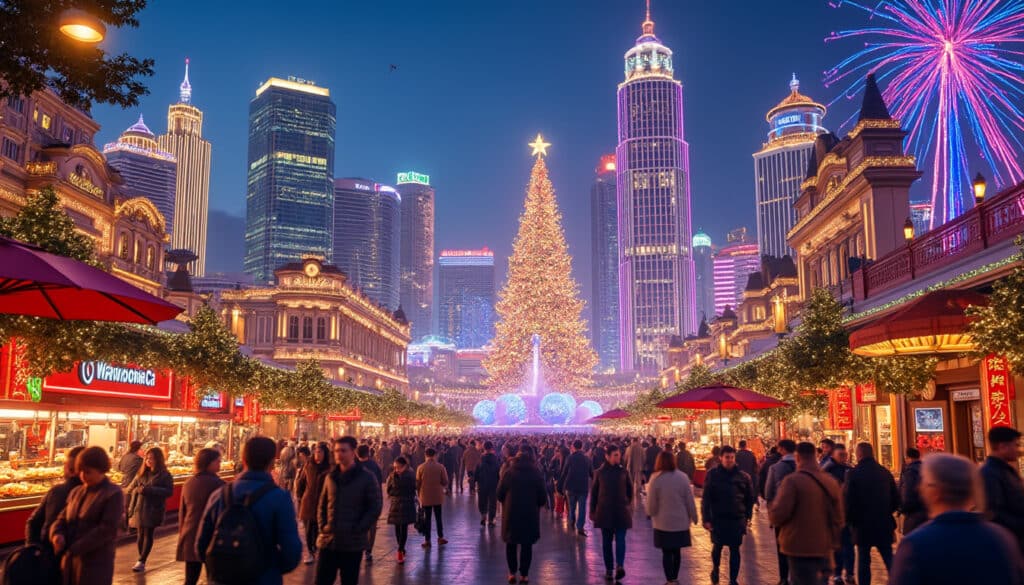Macau has long been a vibrant hub known for its bustling mix of casinos, cultural heritage, and a lively nightlife that attracts tourists from all around the globe. As of November 2025, this dynamic city is making headlines not only for its casino jackpots but also for its new alcohol consumption law. A sweeping change has arrived with Macau aligning itself with many developed regions by banning the sale of alcoholic beverages to anyone under the age of 18. This law, a significant shift in regulating the nightlife scene, reflects Macau’s efforts to address underage drinking and its associated risks. Notably, the law predominantly targets beverages with an alcohol content exceeding 1.2%, leaving room for some lower-alcohol drinks, which stirs discussions among residents and businesses alike. With penalties up to 20,000 patacas for violators, Macau is serious about establishing a safer environment for its youth, inviting a period of transition and adaptation.
Understanding the New Alcohol Law in Macau
The new alcohol consumption law in Macau, effective from November 2025, marks a significant shift in the city’s approach to underage drinking. This legislative action is part of a broader push to harmonize Macau’s policies with international standards seen in places like the United States and the United Kingdom. However, a key distinction in Macau’s regulation is the 1.2% threshold for alcohol content, which allows minors to purchase drinks below this level, including certain low-alcohol beers and other beverages. While this might seem lenient compared to other jurisdictions where the limit is commonly set at 0.5%, it reflects a nuanced approach to regulation.
Macau’s decision to legislate this limit stems partly from cultural considerations. 🍺 As a city where Macau Beer and imported brands like Tsingtao and Suntory are popular, the regulations leverage cultural nuances to balance enjoyment with safety. The enforcement of these laws involves more than just setting age limits; businesses must also prominently display notices about the restrictions, ensuring that venues like cocktail bars and public spaces clearly communicate their no-sales policy to minors. This visible enforcement is key to maximizing compliance and minimizing any adverse impact on the city’s renowned nightlife.
Moreover, the law includes penalties for non-compliance, with fines ranging from 1,500 to 20,000 patacas, depending on the severity of the violation. These penalties serve as a deterrent for both businesses and individuals who might contemplate circumventing the rules. By establishing a clear set of guidelines and consequences, Macau aims to cultivate responsible alcohol consumption while maintaining its status as an international tourist destination.

The introduction of these restrictions has also opened up conversations about the definitions and safety of low-alcohol beverages. Many in Macau may still consume drinks below the 1.2% threshold, which are often marketed as safer alternatives. Yet research indicates that even low-alcohol products can contribute to developing unhealthy behaviors if not monitored closely. This challenge presents an ongoing dialogue among policymakers, health experts, and the community, shaping the broader understanding and responsible management of alcoholic consumption.
Impacts of Age Restrictions on Macau’s Beverage Industry
The enactment of the new alcohol law in Macau brings substantial implications for the beverage industry. With regulations prohibiting sales to minors, vendors and manufacturers are prompted to adapt their marketing strategies and product lines. Companies like Heineken and Cloudy Bay, known for their widespread appeal in luxury hotels and casinos, are recalibrating their offerings to stay compliant while maintaining profitability.
Macau’s unique position as a cultural melting pot means its market is diverse, with a demand for a range of alcoholic products from international brands such as Johnnie Walker and Chivas Regal to traditional favorites. Businesses must navigate these demands while respecting the new legal framework. For instance, cocktail bars may emphasize non-alcoholic cocktails or drinks with lower alcohol content to continue attracting a youthful demographic.
🔍 The city’s laws necessitate that sellers review their stock choices, guiding them to prioritize products that appeal to a broader audience, including those underage restrictions. Some venues have already started to innovate, crafting unique non-alcoholic pairings that complement Macau’s distinct culinary landscape. This adaptation opens opportunities for creativity and diversification in offerings, potentially leading to an enriched consumer experience.
However, challenges persist, primarily for smaller businesses lacking resources to adjust their portfolios swiftly. These establishments might need support, whether through partnerships or initiatives, to navigate this transition without financial strain. The law also underscores the importance of training employees, ensuring they are well-equipped to manage compliance and engage constructively with customers about these changes.
Macau Beverage Sales Before and After Regulation
Before the introduction of age restrictions, Macau’s beverage industry enjoyed a relatively unregulated environment that catered to a broad age range seeking diverse experiences across its bars and casinos. The transition to a regulated model involves significant changes, necessitating the industry to adapt key daily operations.
| Aspect | Before Regulation | After Regulation |
|---|---|---|
| Minimum Age Limit | No official restriction | 18 years |
| Alcohol Content Limit | No official limit | 1.2% for minors |
| Business Impact | Broad customer base | Focused strategy, with diversification into lower-alcohol offerings |
| Enforcement & Penalties | Less formalized | Fines up to 20,000 patacas |
Through such regulatory measures, Macau is steering towards a balanced approach that supports both public health and the economic vitality tied to its vibrant cultural scene.
Cultural Influence and Community Response
The cultural fabric of Macau significantly shapes how these new restrictions are perceived and adopted. A city with deep-rooted ties to both Chinese and Portuguese heritage enjoys a diverse culinary and social palette that mirrors its global interactions. The community, comprising locals and expatriates, manifests varied responses to this legal shift.
Many residents see this law as a necessary step towards aligning with global best practices. Parents and educators often advocate for stricter controls, citing international research that points to the dangers of early alcohol exposure. By setting age restrictions, Macau resonates with a worldwide understanding that such measures can prevent negative long-term health outcomes.
Conversely, some cultural purists worry about the potential dampening effect on Macau’s longstanding traditions of hospitality and celebration. They argue that the heart of Macau’s allure lies in its free-spirited lifestyle and the freedom of choice that attracts visitors worldwide. These community members are keen to ensure that novel regulations do not stifle the symbiotic relationship between culture and commerce in Macau.
- 🗣️ Public consultations have been instrumental in shaping compromises, highlighting the importance of community involvement in legislation.
- 👨👩👧 Young adults in Macau are advocating for increased educational initiatives to accompany these changes, emphasizing informed choices over absolute prohibitions.
- 🎉 Visitors appreciate efforts to preserve the joyful spirit that defines Macau’s nightlife while ensuring safety and compliance.
The community’s divided reactions also form a basis for ongoing dialogues, necessitating that policymakers remain sensitive and responsive to both local sentiments and international trends. By fostering an inclusive platform for discussion, Macau not only navigates this transitional period with greater ease but also increases its global standing as a forward-thinking city.
The Role of International Brands in Macau’s Regulation Transition
International brands have a powerful influence in Macau’s beverage landscape, with many seeing the new law as both a challenge and an opportunity. Brands like Macallan and Chivas Regal, known for their premium offerings, must now reassess their strategies to accommodate these legal changes without compromising their market position in Macau.
The transition brings forth a need for innovation, where global brands can leverage their expansive resources to develop tempting non-alcoholic options for minors or cocktails with a low-alcohol content that appeal to the legal market. This adaptability highlights a brand’s responsiveness to customer-centric regulatory environments, setting a benchmark for others to follow.
Furthermore, international companies can play a constructive role through consumer education, collaborating with local stakeholders to advocate responsible drinking and contribute to Macau’s public health goals. Sponsoring educational campaigns, offering workshops on responsible consumption, and engaging the local populace through social initiatives are avenues where global brands can make a positive impact. 📚
Such partnerships not only promote a culture of responsibility but also cement Macau’s position as a gateway for luxury brand experiences, balanced with a conscientious approach to consumption. The fusion of tradition and modernity presents a win-win scenario, where stakeholders collectively benefit from maintaining Macau’s charm while embracing global standards.
With international brands eager to innovate within these parameters, the potential for Macau’s beverage scene to become a pioneer in legal adaptations is vast. This symbiotic relationship between regulation and commercial strategy is paving the way for an evolved marketplace that respects both cultural heritage and modern sensibilities.
Adapting Branding Strategies to New Regulations
Macau’s beverage industry is undergoing a transformation that aligns with the broader regulatory changes, prompting shifts in branding strategies for both local and international brands.
| Strategy Element | Pre-Regulation | Post-Regulation |
|---|---|---|
| Target Audience | Wide age range, less focus on age-appropriateness | Focused on 18+, development of age-appropriate alternatives |
| Product Lines | Mainly alcohol-centric | Emphasis on low to non-alcoholic options |
| Marketing Campaigns | Broad appeal | Educational focus, promoting safe consumption practices |
| Partnerships | Few collaborations with local initiatives | Engagement in community and responsible drinking programs |
Ultimately, these strategic shifts underscore the importance of adaptability and innovation in maintaining Macau’s vibrant hospitality market against the backdrop of evolving regulations.
FAQs on Drinking and Age Restrictions in Macau
- What is the legal drinking age in Macau as of 2025? The legal drinking age in Macau is 18 years old.
- Are there specific penalties for selling alcohol to minors in Macau? Yes, penalties range from 1,500 to 20,000 patacas depending on the violation’s severity.
- Can minors purchase low-alcohol drinks in Macau? Minors can purchase drinks with an alcohol content below 1.2%, unlike many other jurisdictions where even low-alcohol products are restricted to adults.

Legal Information and Rules in Macau
In 2025, Macau continues to stand as a captivating blend of East and West. A Special Administrative Region of China, it thrives on its rich cultural heritage, vibrant casinos, and unique blend of Portuguese and Chinese legal traditions. This article…
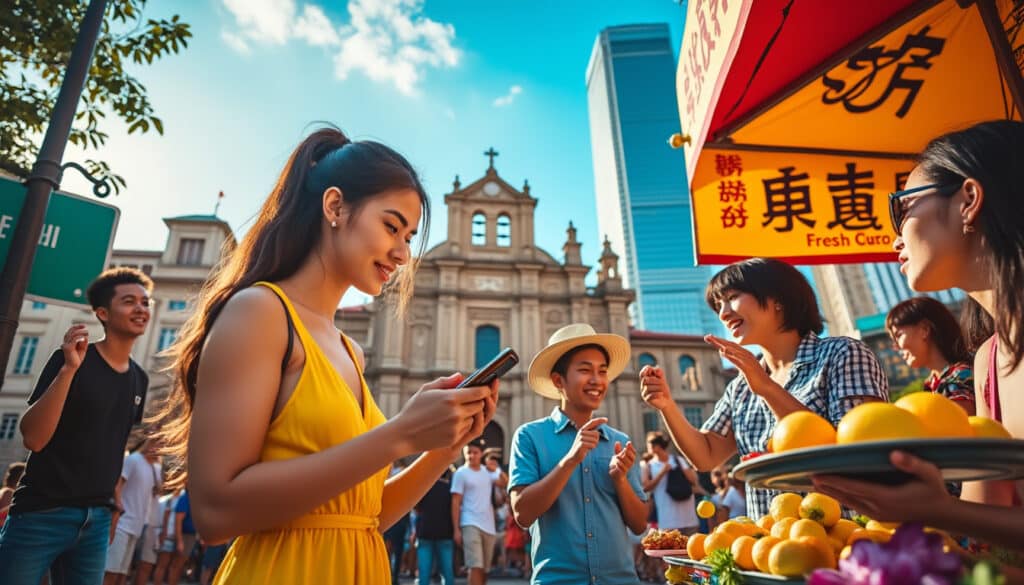
Calling and communication rules in Macau
Macau, a vibrant blend of Eastern and Western cultures, is not only renowned for its bustling casino scene and historic architecture, but also for its dynamic communication infrastructure. Whether connecting with business associates or loved ones, understanding the calling and…

Moving to Macau, the glittering oasis of culture and entertainment in Asia, can be a thrilling prospect for many expats and digital nomads. Known for its unique blend of Portuguese and Chinese influences, Macau offers not only a high quality…
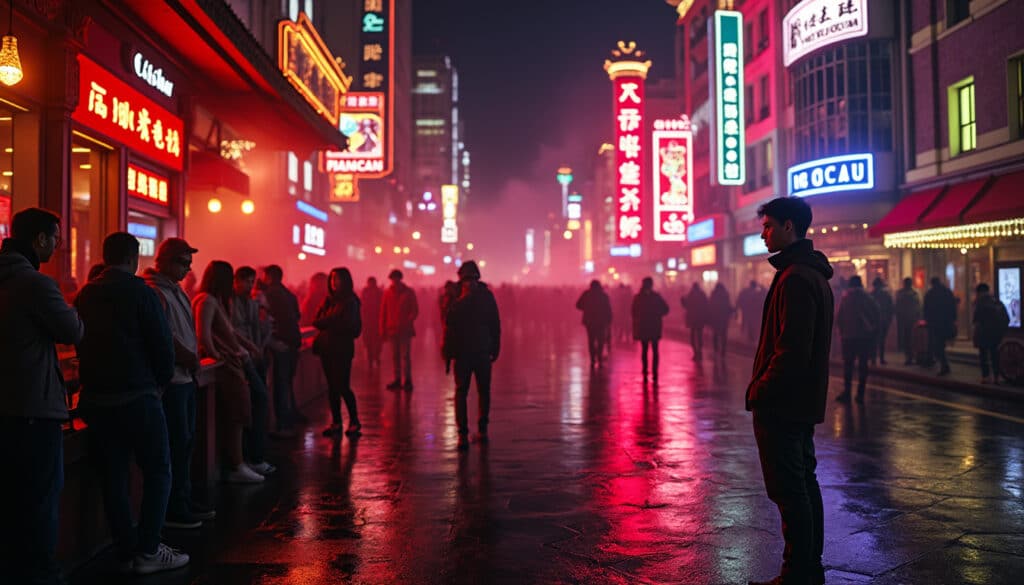
Smoking, drugs, and red light laws in Macau
Macau, often heralded as the Las Vegas of Asia, offers an exciting blend of glitzy casinos, rich cultural heritage, and vibrant nightlife. Nestled in this luxurious backdrop lies a fascinating intersection of smoking, drug, and red-light laws that contribute to…
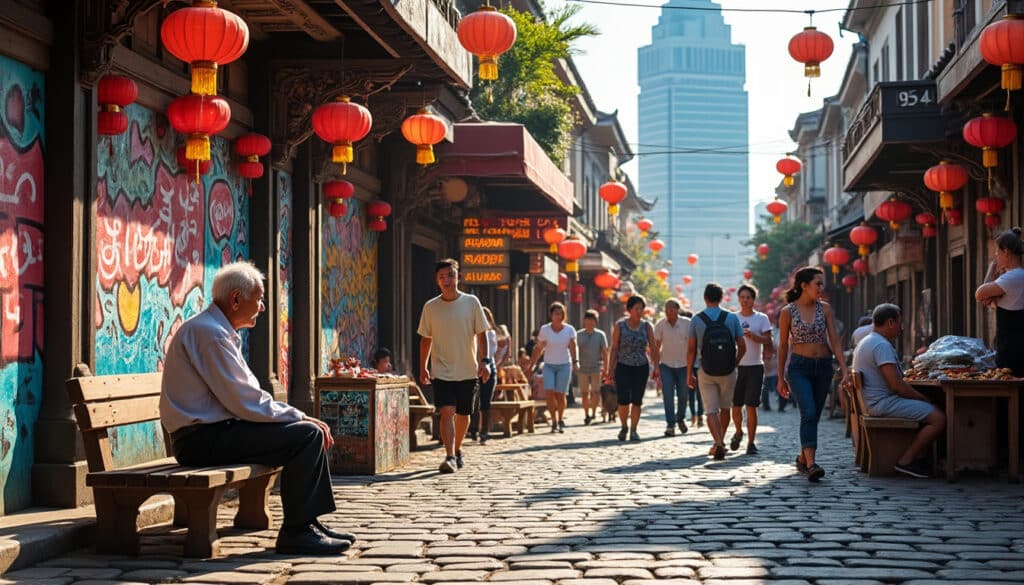
Social and discrimination issues in Macau
Macau, nestled on the southern coast of China, is well known for its glittering casinos and bustling streets that draw visitors from around the globe. Yet beneath the vibrant exterior lies a complex tapestry of social and discrimination issues that…
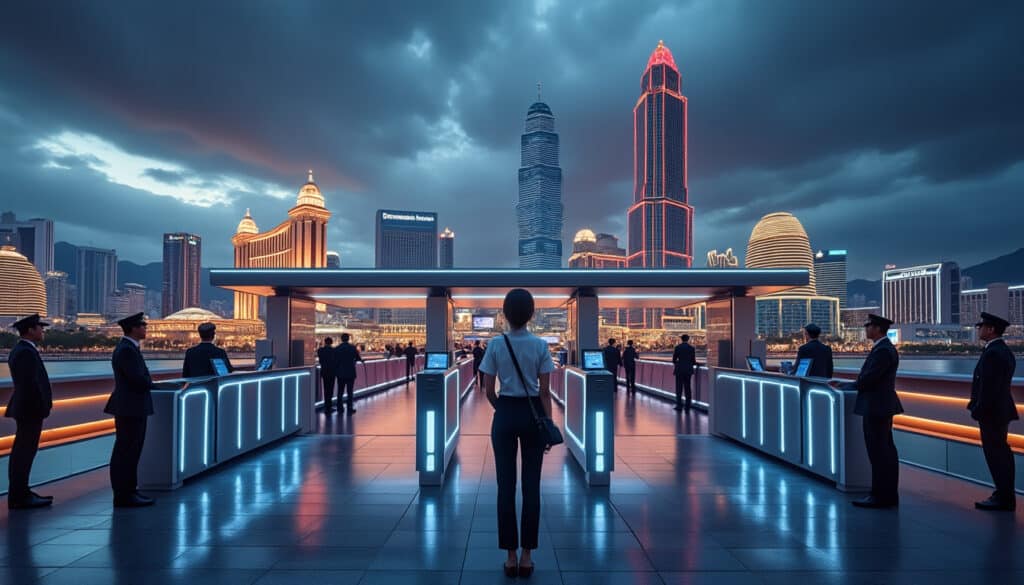
Criminal status and entry to Macau
Navigating the world of entry requirements for Macau can be complex, especially for individuals with a criminal record. As a vibrant city known for its blend of Portuguese and Chinese culture, Macau attracts tourists and professionals alike. However, understanding the…


